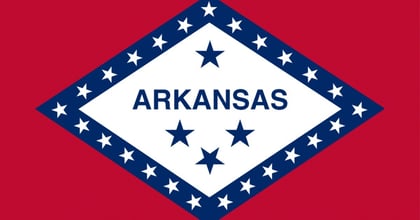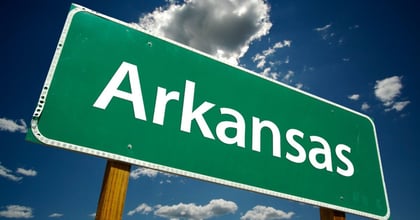Best US Sportsbooks & Betting Sites
We've tested and reviewed the best U.S. sportsbooks and betting sites so you can start wagering confidently.
Offers from the Top Online Sportsbooks in the U.S.
- Must be 21+ to participate (18+ in KY). Gambling problem? Call 1-800-GAMBLER (CO, IL, IA, KY, KS, LA, MD, MO, NC, NJ, OH, PA, TN, VA). Call 1-800-NEXT-STEP (AZ). Call 1-800-9-WITH-IT (IN). CALL 1-877-770-STOP (LA). Must be present in LA (select parishes). Licensee partner Amelia Belle Casino. Minimum $10 deposit required. Minimum odds -500 or greater. Bonus Bets wager excluded from returns. New customers only. T&Cs, time limits and exclusions apply.Best in customer support, user feedback, and live bettingCutting-edge live featuresRazor-sharp oddsGAMBLINGPromo Code
The code required to claim this sign-up bonus (if any)
Live StreamingIs there live streaming of sporting events?
YesIn-Play BettingThe number of sports with in-play betting available
15Bet BuilderCan you create your own personalised bets?
YesCash OutCan you cash out of bets before an event has finished?
YesiOS AppDoes it have an iOS App?
Yesbet365 delivers top-tier pricing, unmatched global markets, and real-time updates through Watch & Bet and live audio commentary. - Gambling problem? Call 1-800-GAMBLER (Available in the US) Call 877-8-HOPENY or text HOPENY (467369) (NY) Call 1-800-327-5050 (MA), 1-800-NEXT-STEP (AZ), 1-800-BETS-OFF (IA), 1-800-981-0023 (PR) 21+ only. Please Gamble Responsibly. See http://BetMGM.com for Terms. First Bet Offer for new customers only (if applicable). Subject to eligibility requirements. Bonus bets are non-withdrawable. In partnership with Kansas Crossing Casino and Hotel. This promotional offer is not available in DC, Mississippi, New York, Nevada, Ontario, or Puerto Rico.
- 21+. New customers in AZ, CO, CT, DC, IA, IL, IN, KS, KY, LA, MA, MD, MI, MO, NC, NJ, OH, PA, TN, VA, VT, WV, or WY (excludes NY). Apply promotion in bet slip and place a $1+ cash wager (min odds -200) daily for 10 consecutive days starting day of account creation. FanCash rewards will equal the qualifying wager amount (max $100 FanCash/day). FanCash issued under this promotion expires at 11:59 p.m. ET 7 days from issuance. Terms, incl. FanCash terms, apply—see Fanatics Sportsbook app. Gambling Problem? Call or Text 1-800-GAMBLER, 1-800-NEXT-STEP (AZ), 1-800-9-WITH-IT (IN), 1-888-532-3500 (VA).
- Must be 21+ and physically present in AZ, CO, IL, IN, IA, KS, KY, LA, ME, MD, MA, MI, MO, NJ, NY, NC, OH, PA, TN, VA, WV, WY or Washington, DC. New users only. Must register using eligible promo code. First wager after registration must qualify. Min. Odds: -500. Max. Bonus Bet: $250. Awarded as non-withdrawable Bonus Bet that expires 14 days after receipt. Bonus Bet amount not returned for winning bets. Void where prohibited. See http://Caesars.com/promos for full terms. Know When To Stop Before You Start®. Gambling Problem? CO, IL, KY, MD, MI, MO, NJ, OH, TN, VA, WV, WY, KS (Affiliated with Kansas Crossing Casino), ME (Licensed through the Mi’kmaq Nation, Penobscot Nation, and Houlton Band of Maliseet Indians, federally recognized tribes located in the State of Maine), NC (Licensed through Tribal Casino Gaming Enterprise), PA (Affiliated with Harrah's Philadelphia): If you or someone you know has a gambling problem, crisis counseling and referral services can be accessed by calling 1-800-GAMBLER (1-800-426-2537) or MD: visit http://mdgamblinghelp.org or WV: visit http://1800gambler.net ; AZ: Call 1-800-NEXT-STEP; IN: Call 1-800-9-WITH-IT; IA: Call 1-800-BETSOFF; LA (Licensed through Horseshoe Bossier City and Caesars New Orleans), Washington, DC (OLG Class A licensed Operator): Call 1-800-522-4700. ©2025, Caesars Entertainment Gambling Problem? Call 1-800-GAMBLER DC, LA: Call 1-800-522-4700 MA: Call 1-800-327-5050 or visit http://gamblinghelplinema.org NY: Call 877-8-HOPENY or text HOPENY (467369)
- Must be 21+ to participate. T&Cs Apply. Play Responsibly. Gambling problem? Call 1-800-GAMBLER (CO, DC, IL, KY, LA, MD, MO, MS, NJ, OH, PA, VA, WV, WY), Call 1-800-9-WITH-IT (IN), Call 877-8-HOPENY or text HOPENY (467369) (NY). Call 1-800-NEXT-STEP (AZ), 1-800-522-4700 (KS), 1-800-327-5050 (MA), 1-800-BETS-OFF (IA), 1-800-270-7117 for confidential help (MI), Call 877-718-5543 or visit morethanagame.nc.gov. (NC), Call or Text 800-889-9789 (TN).
- GAMBLING PROBLEM? CALL 1-800-GAMBLER or 1-800-522-4700, (800) 327-5050 or visit http://gamblinghelplinema.org (MA). Call 877-8-HOPENY/text HOPENY (467369) (NY). Please Gamble Responsibly. 888-789-7777/visit http://ccpg.org (CT), or visit www.mdgamblinghelp.org (MD). 21+ and present in most states. (18+ DC/KY/NH/WY). Void in ONT/OR/NH. Eligibility restrictions apply. On behalf of Boot Hill Casino & Resort (KS). Pass-thru of per wager tax may apply in IL. 1 per new customer. Must register new account to receive reward Token. Must select Token BEFORE placing min. $5 bet to receive $200 in Bonus Bets if your bet wins. Min. -500 odds req. Token and Bonus Bets are single-use and non-withdrawable. Bet must settle by and Token expires 3/15/26. Bonus Bets expire in 7 days (168 hours). Stake removed from payout. Terms: http://sportsbook.draftkings.com/promos . Ends 3/8/26 at 11:59 PM ET. Sponsored by DK.
- Must be 21+ to participate. T&Cs Apply. Play Responsibly. Gambling problem? Call 1-800-GAMBLER (CO, DC, IL, KY, LA, MD, MS, NJ, OH, PA, VA, WV, WY), Call 1-800-9-WITH-IT (IN), Call 877-8-HOPENY or text HOPENY (467369) (NY). Call 1-800-NEXT-STEP (AZ), 1-800-522-4700 (KS), 1-800-327-5050 (MA), 1-800-BETS-OFF (IA), 1-800-270-7117 for confidential help (MI), Call 877-718-5543 or visit morethanagame.nc.gov. (NC), Call or Text 800-889-9789 (TN).
Latest US Sports Betting Updates (Last Reviewed: February 2026)
We track the latest developments across the US sports betting market, including market launches, regulatory developments, and sportsbook updates.
- February 19, 2026: Two petitions (one creating a constitutional amendment, the other creating changes to statutes and rules) aimed at legalizing online sports betting in Nebraska have been approved, and the petitions are ready for circulation.
- February 11, 2026: Washington state lawmakers approved Senate Bill 6137, which would allow betting on in-state college teams at tribal casinos, advancing the bill to the House for consideration.
- February 11, 2026: South Dakota lawmakers passed Senate Joint Resolution 504, sending a constitutional amendment to the House that would allow voters to decide on statewide mobile sports betting.
- February 6, 2026: A Massachusetts judge entered a preliminary injunction against Kalshi that prohibits the prediction market from offering sports-related trades. Kalshi has 30 days to stop offering these markets in MA.
- February 4, 2026: Mississippi lawmakers in the House passed House Bill 1581, a bill that would allow mobile sports betting in the state, advancing it to a Senate vote.
- February 3, 2026: Senator Merika Coleman introduced Senate Bill 257, a proposed constitutional amendment that would allow Alabama voters to decide on gambling expansion, including retail and online sports betting, in the state and on tribal lands.
- February 3, 2026: House Bill 72 was introduced in Louisiana’s 2026 legislative session to allow the nine parishes that rejected sports betting in 2020 to hold new local elections on the matter.
- February 2, 2026: Lawmakers in Hawaii introduced two bills, Senate Bill 3303 and House Bill 2570, in an effort to legalize online sports betting.
- January 30, 2026: House Bill 145, a measure to legalize sports betting in Alaska that was first introduced in March 2025, was refiled for the current legislative session.
- January 14, 2026: The American Gaming Association and the Indian Gaming Association submitted a joint letter to Congress requesting federal action against prediction market operators.
- January 13, 2026: House Bill 910, seeking to legalize sports betting in the state and license up to 18 sportsbooks, is reintroduced in Georgia.
Stay up to date with the latest news and insights from industry insiders:
Our Experts' Top Betting Sites in the US
| Sportsbook | Welcome Offer | Our Overall Score |
|---|---|---|
| 1. FanDuel | $100 Bonus Bets If You Win | 9.1/10 |
| 2. DraftKings | $200 Bonus Bets If You Win | 8.9/10 |
| 3. bet365 | $150 in Bonus Bets | 8.9/10 |
| 4. BetMGM | $1.5K Back + $50 Rewards Points with code GDCBRP1500 $150 Bonus Bets with code GDCBG150 | 8.6/10 |
| 5. theScore Bet | First Bet Reset up to $1000 with code GAMBLING | 8.2/10 |
| 6. Fanatics | Up to $1K in FanCash | 8.15/10 |
| 7. BetRivers | 2nd Chance Bet up to $500 with code GAMBLING | 8.0/10 |
| 8. Hard Rock Bet | Double Your Winnings with 10 100% Profit Boosts Tokens | 7.3/10 |
| 9. Caesars | Bet Match Up to $250 with code GAMBLING250BM | 7.1/10 |
| 10. Sporttrade | 10% Cash Back Up to $100 with code GAMBL | 6.7/10 |
Why You Can Trust Gambling.com's Betting Site Reviews
We know how important it is to find the best online sportsbooks in each state, and we’re committed to helping you find the best and safest betting sites so you can confidently make informed decisions.
Gambling.com has been reviewing sportsbooks in the U.S. since 2018, winning eGaming Review’s Affiliate of the Year award in 2018, 2021, and 2025. Our team includes experts with decades of combined experience in sports and sports betting.
We've selected our top betting sites based on our personal experience and user feedback. Each review is honest, unbiased, and regularly updated to reflect the latest changes.
We review dozens of online sportsbooks over several months, focusing on user experience, betting options, payout speeds, odds, and customer service. We revisit these rankings as welcome offers and features change, adding new recommendations to our list.
Why Sign Up for Multiple Online Betting Sites in the US
Qualify for New Sign-Up Bonuses: Gain access to several introductory offers, which can have hundreds or even thousands of dollars in bonus bet upside.
Build Loyalty Points: You can start earning points to unlock rewards across multiple sites. Some even match your loyalty status from other sportsbooks.
Shop for the Best Odds: Compare and contrast odds based on what you want to bet on to find the best value. This is known as odds shopping.
1. FanDuel: Best US Sportsbook for Today's Bettor (9.1/10)
Our Verdict: FanDuel leads the pack as one of the easiest, most seamless, and safest sportsbooks in the U.S. We love its user interface, large selection of payment methods, and easy-to-use live betting menus. It’s an industry leader for good reason.
Best for: We’ve found a lot of value in FanDuel’s odds for underdog bettors. That being said, it has been well-known in the gaming industry for a long time, and it's a go-to site for pretty much every level of bettor.
Pros & Cons
- Industry-leading reputation
- App performs well on both iOS & Android
- Excellent market coverage for dozens of sports
- Near-perfect user experience with easy-to-use website & app
- Frequently offers odds boosts on selected bets
- Strong live betting menu, which includes multiple in-game markets, game trackers, and live streaming
- Has almost every feasible banking option imaginable for deposits & withdrawals, catering to a broad audience
- Innovative betting features, including dedicated parlay hub
- Lacks a specific loyalty program for sports bettors
- Player prop markets are a bit limited compared to top competitors
- No phone number available for customer support & it can be difficult to reach a service agent for help
- Fewer ongoing promos for existing users than its competitors
- Expanding accepted credit cards to include Discover & American Express would push it over the top
At a Glance
- Platforms: iOS, Android, web
- Promo Code: No Code Required
- Licensed Online States: AZ, CO, CT, DC, IL, IN, IA, KS, KY, LA, MD, MA, MI, MO, NJ, NY, NC, OH, PA, TN, VA, VT, WV, WY
- Payout Speed: Within 24 hours
- Rewards Program: None
- Live Betting: Yes
Click through to learn more about FanDuel's customer service, payment methods, and features.
2. DraftKings: Easiest US Sportsbook to Use (8.9/10)
Our Verdict: DraftKings offers one of the most complete, most intuitive betting experiences with one of the best selections of player props you’ll find. If you want to wager on props, there’s nowhere better than DraftKings.
Best for: DraftKings is best for low-friction bettors who want practical wagering tools and easy navigation.
Pros & Cons
- Extensive betting menus across many sports, particularly for player props
- Odds tend to be posted and updated quickly
- Welcome offer requires minimal effort to claim as a player
- Easy-to-use live betting, including strong menu, streaming, game tracking
- Simple, easy-to-use rewards program
- Provides multiple customer support options, including voicemail & requesting callback; easy to get in touch using live chat
- Promotions are typically weaker compared to competitors'
- No phone number for customer service
- Odds are not as competitive as they are at other sportsbooks
- Credit cards are no longer accepted for deposits
At a Glance
- Platforms: iOS, Android, web
- Promo Code: No Code Required
- Licensed Online States: AZ, CO, CT, DC, IL, IN, IA, KS, KY, LA, ME, MD, MA, MI, MO, NH, NJ, NY, NC, OH, OR, PA, TN, VT, VA, WV, WY
- Payout Speed: Within 24 hours
- Rewards Program: Dynasty Rewards
- Live Betting: Yes
Click through to learn more about DraftKings' customer service, payment methods, and features.
3. bet365 Sportsbook: Best Overall User Experience in U.S. (8.9/10)
Our Verdict: Thanks to its global reach, bet365 is one of the best sportsbooks for market variety and international event coverage. It offers consistently competitive odds on an exceptionally wide range of sports. Plus, it has some of our favorite live betting features on the market, including Watch & Bet and live audio commentary.
Best for: This sportsbook will appeal to experienced bettors looking for sharp pricing.
Pros & Cons
- Stellar global reputation with years of experience
- Excels in customer service with strong selection of methods, including phone support (rare among competitors)
- Markets go deep and wide, including major and niche sports
- Strong live betting options and features
- Some of the most competitive odds in the industry
- Unique ongoing promos for existing users
- Provides reliable and quick payouts
- No loyalty program for sports betting
- No referral bonus, either
- One-off daily promos leave much to be desired
- Has fewer withdrawal methods than top competitors
At a Glance
- Platforms: iOS, Android, web
- Promo Code: No Code Required
- Licensed Online States: AZ, CO, IL, IN, IA, KS, KY, LA, MD, MO, NC, NJ, OH, PA, TN, VA
- Payout Speed: Within 24 hours
- Rewards Program: None
- Live Betting: Yes
Click through to learn more about bet365's customer support, payment methods, and features.
4. BetMGM Sportsbook: Best U.S. Market Depth (8.6/10)
Our Verdict: BetMGM offers a huge variety of betting markets, especially for hockey and prop bets. Live betting is easily accessible, just one of many features available on this trusted platform.
Best for: BetMGM is best for bettors who want good odds and real-world experiences. The MGM Rewards program is particularly well-suited for those who love finding value in their purchases.
Pros & Cons
- Well-known, trustworthy brand with strong technical prowess
- Broad betting markets, including great markets for hockey & international sports
- Solid live betting offerings
- Decent odds pricing
- Lucrative MGM Rewards program earns you bonus bets & real-world benefits
- Easy to get connected with customer support via live chat
- Offers more deposit and withdrawal methods than most competitors
- App can sometimes be glitchy or unresponsive; Design layouts and response times make the platform more difficult to use
- Live chat support can be slow during peak times
- Lack of live streams available compared to competitors
- Encountered some issues when trying to apply promos from the homepage when logged in
- Internal withdrawl checking process here is relatively laborious & can take several days
At a Glance
- Platforms: iOS, Android, web
- Bonus Code: GAMBLING or GDCBG150
- Licensed Online States: AZ, CO, DC, IL, IN, IA, KS, KY, LA, MD, MA, MI, MS**, MO, NV, NJ, NY, NC, OH, PA, TN, VA, WV, WY
- Payout Speed: Within 24 hours
- Rewards Program: MGM Rewards
- Live Betting: Yes
**only available online while on the premises of designated retail locations
Click through to learn more about BetMGM's customer support, payment methods, and features.
Our Verdict: theScore Bet, Penn's rebrand of ESPN BET, stands out among U.S. sportsbooks for its creative, analyst-driven promotions. You'll never get bored browsing its ongoing offers, even if the odds pricing leaves something to be desired.
Best for: Because it is easy to integrate with other sports apps, including theScore stats and news app, theScore Bet is perfect for die-hard sports fans who want to add betting to their repertoire.
Pros & Cons
- Rewarding loyalty program in PENN Play
- Easy, simple navigation across platforms
- Convenient payment methods available
- Often has some of the most unique markets
- Personalized promos, exclusives & other specials available
- No desktop betting site available yet
- Fewer payment methods available than there were with ESPN BET
At a Glance
- Platforms: iOS, Android
- Promo Code: GAMBLING
- Licensed Online States: AZ, CO, DC, IL, IN, IA, KS, KY, LA, MD, MA, MI, MO, NJ, NY, NC, OH, PA, TN, VA, WV
- Payout Speed: Within 24 Hours
- Rewards Program: PENN Play Rewards
- Live Betting: Yes
Click through to learn more about theScore Bet's customer support, banking, and features.
6. Fanatics Sportsbook: Best for On-the-Go Value in USA (8.15/10)
Our Verdict: The mobile-only Fanatics Sportsbook offers a well-organized app with a solid betting market variety. Our favorite part about Fanatics is the FanCash Rewards program, which gives you cashback on every bet. It’s easily the most unique thing about an app that has the potential to grow into a truly elite sportsbook over time.
Best for: Fanatics Sportsbook is best for tech-savvy users who already have some experience betting and don’t need a desktop counterpart to their betting app.
Pros & Cons
- FanCash Rewards program, offering up to 10% FanCash on bets, win or lose
- Live betting & streaming available, including select NFL games
- Relatively strong betting menus with guest appearances from celebrities
- UX feels like using your favorite social media or sports news apps
- Fewer ongoing promos & boosts than competitors
- Odds aren't as competitive as they are at other sportsbooks
- Access to more banking options, including credit cards
- Can be difficult to speak to a real representative when contacting customer service
- Lack of niche betting markets
At a Glance
- Platforms: iOS, Android
- Promo Code: No Code Required
- Licensed Online States: AZ, CO, CT, DC, IL, IN, IA, KS, KY, LA, MD, MA, MI, MO, NJ, NY, NC, OH, PA, TN, VT, VA, WV, WY
- Payout Speed: Within 24 Hours
- Rewards Program: FanCash Rewards
- Live Betting: Yes
Click through to learn more about Fanatics' customer support, banking, and features.
7. BetRivers: Most Well-Rounded US Sportsbook (8.0/10)
Our Verdict: BetRivers Sportsbook has a well-rounded betting market and promotions menu, but its layout isn’t optimized for live betting or mobile use (yet). We love the iRush Rewards program, and we’d love to see even more upgrades here and in the user experience. Improvements to the tech would make a huge difference.
Best for: BetRivers is ideal for odds shoppers who can take full advantage of their iRush rewards points. BetRivers is also great for bettors who love same-game parlays. Most of their daily promotions for ongoing users center around parlays, so you can squeeze a lot of value from BetRivers.
Pros & Cons
- Industry-leading odds
- Strong loyalty program in iRush Rewards
- Comprehensive, responsive customer support
- Refer-a-friend bonus offered
- Betting markets are fairly comprehensive
- Now offers "Instant Betting" (aka microbetting)
- Mobile app and website don't match UX; site is harder to navigate than the app
- Withdrawals often take longer than advertised, despite custom RushPay system
- Lack niche sports offered by other sportsbooks, such as snooker, eSports, and cycling
- Interface feels dated & doesn’t do its features, like pre-game and in-game stats, much justice
At a Glance
- Platforms: iOS, Android, web
- Bonus Code: GAMBLING
- Licensed Online States: AZ, CO, DE, IL, IN, IA, LA, MD, MI, NJ, NY, OH, PA, VA, WV
- Payout Speed: Within 24 hours
- Rewards Program: iRush Rewards
- Live Betting: Yes
Click through to learn more about BetRivers' customer support, banking, and features.
Our Verdict: Hard Rock Bet is an uncluttered, quick sportsbook with an excellent live betting experience. Some of our favorite features include odds boosts, Flex Parlays, effective live chat, and quick payouts. We just wish it was available in more states, which would perhaps put pressure on Hard Rock to make some upgrades to help it stand out.
Best for: Hard Rock Bet is best for casual, tech-savvy bettors who prefer mobile betting.
Pros & Cons
- Sleek, feature-rich user experience
- Strong, highly rated mobile app with quick payments
- Impressive live betting, including live stats, live tracking, and a large selection of events to live-stream
- Knowledgable, helpful, and friendly customer support, particularly through live chat & email
- High-value daily odds boosts
- Banking options are solid for deposits
- Sportsbook suffers from lack of competition in Florida
- Odds aren't particularly competitive
- Lacking in regular promos, including within the loyalty program
- Customer support options are limited, with no phone support available
- Debit card withdrawals not supported & some states don't accept debit or credit as payment methods
At a Glance
- Platforms: iOS, Android, web
- Promo Code: No Code Required
- Licensed Online States: AZ, CO, FL, IL, IN, MI, NJ, OH, TN, VA
- Payout Speed: Within 24 hours
- Rewards Program: Unity by Hard Rock
- Live Betting: Yes
Click through to learn more about Hard Rock Bet's customer support, banking, and features.
9. Caesars Sportsbook: Best U.S. Market Breadth (7.1/10)
Our Verdict: Caesars Sportsbook is one of the most trusted names in gambling, and you can feel safe as a new user in one of the many states where it’s live. We love Caesars’ betting markets and odds boosts; in fact, it has some of the biggest and best boosts in the U.S. We wish the sportsbook had more: more promos, better app performance, more live betting options, and better odds margins.
Best for: Caesars is best for bettors who want to turn their bets into real-world experiences with the Caesars Rewards program. The program is well-suited for those who like to read the fine print of their benefits and can put them to use.
Pros & Cons
- Impressive betting menus
- Valuable daily odds boosts & other creative ongoing promos
- Lucrative Caesars Rewards loyalty program
- Strong NFL betting offerings, including live streaming, Watch & Bet, and creative promos
- Banking at Caesars is solid; supports all major credit/debit cards, PayPal, and Venmo, ensuring easy deposits
- Instant payouts are available for select payment methods
- Long wait times for customer service help, particularly when using live chat
- Odds aren't as competitive as they are with other sportsbooks
- Lack of live streams outside of NFL
- Often experiences loading delays on mobile
- Apple Pay is not supported & withdrawal options are limited
At a Glance
- Platforms: iOS, Android, web
- Promo Code: GAMBLING250BM
- Licensed Online States: AZ, CO, DC, IL, IN, IA, KS, KY, LA, ME, MD, MA, MI, MO, NJ, NY, NC, OH, PA, TN, VA, WV, WY
- Payout Speed: Within 24 hours
- Rewards Program: Caesars Rewards
- Live Betting: Yes
Click through to learn more about Caesars' customer support, banking, and features.
10. Sporttrade: Best for Exchange Betting in U.S. (6.7/10)
Our Verdict: Sporttrade is truly unique among U.S. sportsbooks; it’s the only major betting exchange platform in the country (so far). It presents an exciting alternative to traditional betting, but it still has some room to grow, like adding more markets and balancing iOS and Android functionalities, before it can compete with FanDuel or DraftKings.
Best for: This is an excellent fit for bettors who are already familiar with trading and want to extend it to their wagering. Sporttrade users tend to be experienced bettors who value transparency when odds shopping and can react quickly to changes in the market.
Pros & Cons
- As a betting exchange, offers better value on odds than traditional sportsbooks
- Clear, transparent pricing displays positions as probabilities, which can be easier to understand
- Customer support is professional, personable, and genuinely focused on user needs
- App not available for Android users
- Limited markets, covering only 9 total sports/leagues and 4 bet types
- Payment methods are limited; only offers online banking, PayPal, and Venmo
At a Glance
- Platforms: iOS, Android
- Promo Code: GAMBL
- Licensed Online States: AZ, CO, IA, NJ, VA
- Payout Speed: Within 24 hours
- Rewards Program: None
- Live Betting: No
Click through to learn more about Sporttrade's customer support, banking, and features.
More Great USA Sports Betting Sites
Several more notable sites are available outside of our Top 10.
Borgata
Our Verdict: Borgata has much to offer, but its most significant advantages are in person, rather than online. Borgata is owned by BetMGM's parent company, which allows users to earn MGM Rewards with every bet. However, the online product still has room to grow and add more promotions.
Best for: Borgata's online sportsbook is ideal for frequent Atlantic City visitors who can maximize their rewards credits and enjoy in-person withdrawals at the hotel & casino location.
Bet Desert Diamond
Our Verdict: This book doesn't have the bells and whistles of more national sportsbooks (for example, live streaming), but Bet Desert Diamond's unique ongoing promotions, competitive odds, and easy navigation were a pleasant surprise.
Best for: If you're an Arizona bettor who wants a simple user experience and creative promos, Bet Desert Diamond is the local sportsbook for you.
Crab Sports
Our Verdict: Crab Sports punches above its weight with comprehensive betting markets, helpful promotions, and solid odds. This is a promising choice for casual Maryland bettors to add to their regimen.
Best for: Maryland-based bettors who prefer no-frills markets and odds over flashy features will feel right at home with Crab Sports.
Methodology
Our Process
Gambling.com experts test the most popular sportsbooks in the U.S. and grade them on 10 criteria.
First, we verify that a sportsbook is licensed in all jurisdictions where it operates. We will never recommend an unlicensed or offshore betting site, as they're not beholden to the betting legislation that's in place in your state to keep you, your data, or your money safe.
We sign up, make deposits, claim promotions, place wagers, request withdrawals, and contact customer support. This thorough testing allowed us to gather extensive evidence about each site, enabling us to compare and contrast them.
We take our users’ feedback very seriously when evaluating sportsbooks. You can sign up as a Gambling.com member to help shape our recommendations, share your views, and help your fellow bettors.
Trust Factors
We assign our top sportsbooks an overall score out of 10, using these 10 key trust factors to deliver the most comprehensive reviews possible:
Sports & Markets: A diverse range of sports and betting markets is crucial to cater to all types of bettors.
Promotions: Promotions, including sign-up bonuses and regular rewards, should be fair, transparent, and accessible.
Payments: Trustworthy sites should offer a variety of payment methods and provide fast, reliable payouts.
Customer Support: We continually test customer service processes to ensure they deliver prompt, efficient, and accessible support.
Reputation & User Feedback: We read verified reviews from real iOS and Android app users, as well as reviews from reputable forums such as Reddit, Trustpilot, and TripAdvisor.
Site UX: We evaluate the user interface, navigation, and overall quality of online sportsbooks to ensure a satisfying betting experience.
Mobile Product: The app should be easy to navigate, load quickly, and be available on both major app stores.
Responsible Gambling: Sites should provide robust tools to support responsible play, including deposit limits, self-exclusion lists, and access to support networks.
Live Betting Features: We observe real-time odds updates, early cash-out options, and live streaming to see which sites go the extra mile.
Odds Value: We compare odds across various markets at several sites. Sites offering consistently strong prices provide excellent value.
Who We Are
Best US Betting Site by Sport & Event
College Basketball & Football: DraftKings
DraftKings boasts the most extensive college sports betting menus, alongside easy-to-find team stats, matchup previews, and betting trends.
MLB: BetMGM
Along with an exhaustive betting menu, BetMGM edged out other sportsbooks with slightly better margins on MLB odds.
MMA: BetMGM
BetMGM makes it easy to find and bet on MMA, offering a comprehensive list of individual fights within upcoming UFC events, available up to a month in advance.
NASCAR: BetMGM
You can easily find all NASCAR betting markets at any point in the year with BetMGM. Plus, BetMGM has the most preseason NASCAR futures markets.
NBA: bet365
With bet365, you can browse tons of NBA wagers; player headshots make it easy to spot your favorite stars for player props. You can get an impressive well of pregame stats, and you can easily see which games will be available to live stream later.
NFL: FanDuel
FanDuel consistently offers NFL promotions and specials, boasting one of the most comprehensive NFL player prop menus that make it easy to place same-game parlays.
NHL: DraftKings
DraftKings’ many NHL markets are easy to navigate, and you have access to game stats and betting trends.
Oscars: bet365
bet365 is the only US sportsbook where you're likely to find odds on the Academy Awards at any point in the year.
Soccer: bet365
Regardless of the league or time of year, bet365 offers soccer promotions, including early cashouts and substitution guarantees.
WNBA: Caesars
Caesars makes its extensive WNBA betting menu easy to find and navigate throughout the year.
Is Sports Betting Legal in the US?
Sports betting is generally legal in the U.S. However, the legality depends on your location.
In 2018, the United States Supreme Court overturned the Professional and Amateur Sports Protection Act (PASPA), a federal ban against sports betting. When the ban was struck down, individual states were allowed to determine the legal status of sports betting. As a result, sports betting is legal on a state-by-state basis.
States with Legal Online Betting
| State | Min. Age | Governing Body |
|---|---|---|
| Arizona | 21+ | Arizona Department of Gaming |
| Arkansas | 21+ | Arkansas State Racing Commission |
| Colorado | 21+ | Colorado Limited Gaming Control Commission & Colorado Division of Gaming |
| Connecticut | 21+ | Connecticut Department of Consumer Protection's Gaming Division |
| Illinois | 21+ | Illinois Gaming Board |
| Indiana | 21+ | Indiana Gaming Commission |
| Iowa | 21+ | Iowa Racing & Gaming Commission |
| Kansas | 21+ | Kansas Racing & Gaming Commission |
| Kentucky | 18+ | Kentucky Horse Racing and Gaming Corporation |
| Louisiana | 21+ | Louisiana Gaming Control Board |
| Maine | 21+ | Maine Gambling Control Unit |
| Maryland | 21+ | Maryland Lottery & Gaming Control Agency |
| Massachusetts | 21+ | Massachusetts Gaming Commission |
| Michigan | 21+ | Michigan Gaming Control Board |
| Missouri | 21+ | Missouri Gaming Commission |
| Nevada | 21+ | Nevada Gaming Commission & Nevada Gaming Control Board |
| New Jersey | 21+ | New Jersey Casino Control Commission & Division of Gaming Enforcement |
| New York | 21+ | New York State Gaming Commission |
| North Carolina | 21+ | North Carolina State Lottery Commission |
| Ohio | 21+ | Ohio Casino Control Commission |
| Pennsylvania | 21+ | Pennsylvania Gaming and Control Board |
| Tennessee | 21+ | Tennessee Sports Wagering Council |
| Vermont | 21+ | Vermont Department of Liquor & Lottery |
| Virginia | 21+ | Virginia Lottery |
| Washington, D.C. | 18+ | Office of Lottery & Gaming (OLG) |
| West Virginia | 21+ | West Virginia Lottery Commission |
| Wyoming | 18+ | Wyoming Gaming Commission |
States with Only One Online Sportsbook
Some states operate their online sports betting markets as monopolies. Each of these states has a unique partnership or agreement with a single sportsbook that operates all online sports betting:
Delaware: Delaware Lottery awarded an exclusive contract to BetRivers to operate sports betting. Bally Bet and others run some retail sportsbooks.
Florida: Hard Rock Bet is the only mobile and retail sportsbook in Florida. The state has a betting compact exclusive to the Seminole Tribe of Florida, which owns Hard Rock International.
New Hampshire: The NH Lottery Commission has a contractual license agreement with DraftKings, which operates all mobile and retail betting in the state.
Oregon: DraftKings operates all online betting through an exclusive agreement with the Oregon Lottery. Other providers operate retail-only sportsbooks in the state, such as BetMGM and Caesars.
Rhode Island: The Rhode Island Lottery Commission operates the only in-state mobile app, Sportsbook Rhode Island. There are two retail Bally Bet sportsbooks in the state.
Online Betting Legal Only on Retail Casino Property
In the states below, online and mobile sports betting are only permitted within specific geographic limits surrounding brick-and-mortar casinos. You can also place in-person bets in these states at approved sportsbooks.
| State | Min. Age | Governing Body |
|---|---|---|
| Mississippi | 21+ | Mississippi Gaming Commission |
| Montana | 18+ | Montana Lottery |
| Washington | 21+ | Washington State Gambling Commission |
| Wisconsin | 21+ | Office of Indian Gaming & Regulatory Compliance |
Other States
In Nebraska, New Mexico, North Dakota, and South Dakota, only in-person sports betting is allowed at approved locations. All have set their minimum betting age at 21 years old.
The following states do not allow sports betting of any kind, neither online nor retail:
- Alabama
- Alaska
- California
- Georgia
- Hawaii
- Idaho
- Minnesota
- Oklahoma
- South Carolina
- Texas
- Utah
None of these states is expected to legalize online betting in 2026.
Fastest Payout Betting Sites
All the sites we recommend offer safe, secure transactions and banking methods, including e-wallets such as PayPal, Venmo, and Skrill, as well as credit cards, debit cards, and bank transfers.
Through our testing, we found that debit card withdrawals, PayPal, and VIP expedited withdrawals provided the fastest payout times.
| Payment Method | Site with Fastest Payout | Withdrawal Time |
|---|---|---|
| Debit Card | BetMGM | Within 1 hour |
| Bank Transfer | bet365 | 1 business day |
| PayPal | Fanatics | Within 30 minutes |
How to Choose the Right Online Betting Site for You
When selecting a legal betting site, consider these key aspects:
Bonus Offers: Loyalty rewards and referral bonuses are valuable as they provide additional credits and incentives. Look for ongoing sportsbook promos and no-deposit bonuses.
User Experience: Signing up for a site should be simple, secure, and require minimal effort. Look for an intuitive interface, mobile compatibility, and easy account management.
User Reviews: Consider user reviews on forums and app stores to gauge the overall user satisfaction with a site. Reading user reviews can help you understand how to use the site effectively.
Competitive Odds: Look for sites that offer better value through competitive odds that update quickly. Promotions like boosted odds can also make a difference.
Payout Speed & Convenience: Ensure the site supports multiple deposit methods. Look for fast, reliable withdrawals with low fees and reasonable limits.
Reliable Support: The more customer support channels, the better. Opt for sites with 24/7 support through live chat, email, and phone. Knowledgeable and responsive staff, along with positive user reviews, indicate high-quality service.
Responsible Gambling
Sports betting should be fun, and we at Gambling.com never want to see anyone struggle. That's why responsible gambling is paramount.
Sports betting should be purely for entertainment. Never chase losses or bet more than you can comfortably afford to lose.
Avoid Offshore Sportsbooks
The best way to guarantee the security of your personal information, money, and banking information is to use licensed legal betting sites. The most common sites to avoid include: Bovada, BetOnline.ag, BetUS, Xbet, BetWhale, Everygame, and BetNow.
Resources
This guide includes extensive tools to support responsible betting practices. Each recommendation offers resources to manage gambling safely and responsibly.
There are resources available, including:
- Self-Exclusion Lists: You can add yourself to a site's self-exclusion list, which prevents you from wagering there.
- Deposit Limits: In each site menu, you can set a limit on how much you can deposit into your account.
- Wagering Limits: You can limit how much you can wager at a site.
- Time Limits: You can set time limits for a site in your account settings.
- Cooling Off Periods or Time Outs: Your site allows you to turn on a "time out," which will restrict you from betting for a given period.
Sportsbooks in your state will provide links and contact information to various resources nationally and locally to help you if you’re struggling or if you know someone who is.
If you or someone you know is struggling with problem gambling, you can call 1-800-GAMBLER, text the National Problem Gambling Helpline, or live chat on their website. State-specific gambling treatment resources are also available.
FAQs
What is the No. 1 sportsbook in the US?
Our experts ranked FanDuel Sportsbook as the No. 1 betting site for US bettors of all experience levels. The rest of our top 10 sportsbooks include DraftKings, bet365, BetMGM, Caesars, and Fanatics, so you can test out all of them and pick your favorites.
Is it legal to bet on sports in the US?
It is legal in most states to bet on sports, but the legality depends on where you're located when placing a bet. Most states require you to be age 21 or older to bet on sports.
Is it safe to bet on sports in the US?
Yes, it is safe to bet on sports in the US, as long as you wager with licensed and accredited betting sites, like those we've recommended on this page. Such sites ensure that your funds and personal data remain safe, while also promoting responsible gambling practices.
What is the best online sportsbook for live betting?
Our top online sportsbook for live betting is bet365. In many instances, you can watch live-stream games virtually in real-time. You can also find live stats informing your next in-play call.
bet365's early payout offer on teams that take a big lead is also ideal for in-play betting.
Is sports betting legal in Florida and which sportsbooks are allowed in Florida?
Sports betting is legal in Florida. As of now, only one sportsbook is available: Hard Rock Bet, which the Seminole Tribe of Florida runs.
Florida is the largest state by population with legal sports betting, so it's crucial to understand how to use Hard Rock Bet. You must be at least 21 and located in the state to use it in Florida.
How do I sign up for legal sportsbooks in the US?
Signing up for a new account with an online sportsbook is as easy as signing up for any other website. However, you must consider some unique specifics, including personal details and ID verification.
- Click on one of the links embedded in the banners on this page. This will navigate you to your state's site's welcome page.
- Click on the "Start," "Join," or "Sign Up" button.
- Enter your email address, phone number, and home address
- Enter our sports betting promo code to qualify for the new-user welcome offer.
- Create a secure password.
- Confirm your first & last name, date of birth, and the last four digits of your Social Security number. You may need to wait for the operator to confirm your identity before you can start betting.
- Agree to the terms & conditions.
- Make your first deposit. Read the site's welcome bonus terms to ensure you make a qualifying deposit.






























